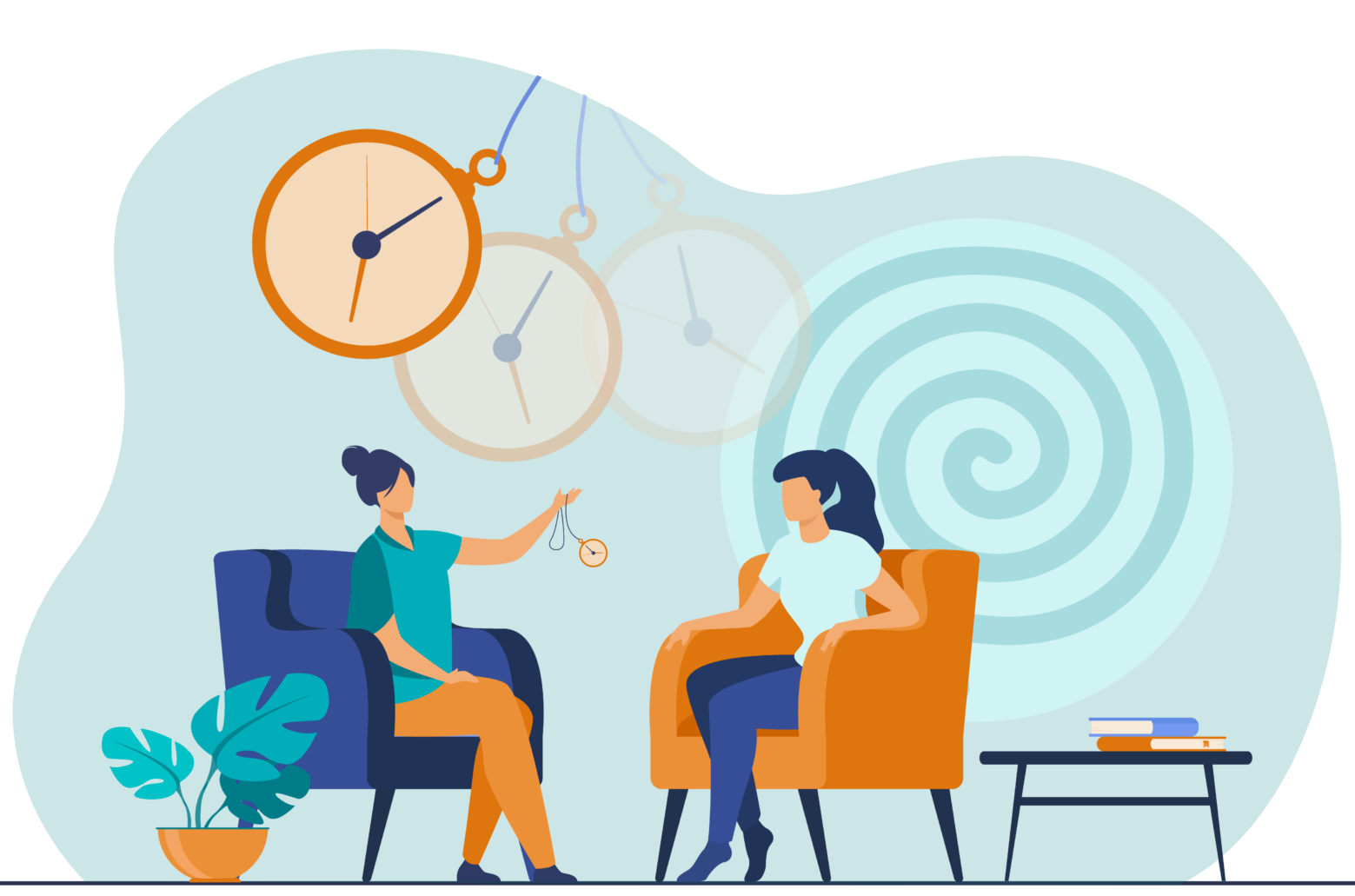 Prof. Eugenijus Laurinaitis / Delfi.lt archive
Prof. Eugenijus Laurinaitis / Delfi.lt archive
Hypnosis is a globally known therapy used by psychotherapists. However, it remains shrouded in myth and rumour. According to Prof. Eugenijus Laurinaitis, a psychiatrist-psychotherapist, from the Faculty of Medicine at Vilnius University, one can only laugh when a person who comes to see a hypnosis practitioner asks what would happen if they were not brought out of their hypnosis. The professor is adamant that there really is no need to be afraid of hypnosis. “Hypnosis is a collaborative process. The psychotherapist tries to help the individual enter a state of consciousness that will make the therapy session the most beneficial for them. So, there is no purpose in hypnotising anyone who does not want to be hypnotised,” the specialist said.
What is hypnosis? How does it differ from sleep?
It is important to note, that hypnosis is not the same as sleep. It is a special state of consciousness called a trance. In the opinion of some authors with a negative view of trance theory, hypnosis is merely a set of manifestations during a deep state of suggestibility. In essence, however, it does indeed draw on an innate human quality: suggestibility. Some people are known to say: ‘You can’t convince me using hypnosis.’ But hypnosis is not persuasion, hypnotherapy is not about convincing. Hypnosis uses our innate quality of suggestibility that we possess throughout our lives. In the earliest phase of human life, suggestibility allows us to learn and discover a great deal of information without criticism. This is how suggestibility differs from understanding or believing, because in the case of the two latter processes, our consciousness “filters” the information it receives by critically evaluating it. Meanwhile suggestibility is based on an unconscious “channel” of communication. It is particularly important that the hypnotherapist is not only proficient in the technique, but also adheres to strict ethical principles. Many different things can be introduced through suggestion which can manifest themselves in people, for example in dreams, as a belief about themselves. And then they don’t understand where it came from. It is important to control the processes of hypnosis, while you work with them. I would like to use the word “technique” here for a reason: although there are various opinions, I think that hypnosis is not an independent type of psychotherapy, but rather a technique that can be applied productively in almost all fields of psychotherapy. Therefore, hypnosis should be taught to psychotherapists, i.e. to those who have already completed their psychotherapy training and have the other necessary education.
What are the most common problems people have when they seek this kind of therapy? How can hypnotherapy help a person?
People come to hypnosis specialists for the same problems as they do when they wish to see any other psychotherapist, i.e. anxiety, panic attacks, mood disorders, a variety of somatoform disorders (sensations in the body, although the body is perfectly healthy), etc. Firstly, hypnosis helps us to relax, to manage anxieties and fears, that might arise during the broader psychotherapy process. Also, hypnosis helps us to focus on the relationship that develops between the psychotherapist and the client, which is of particular importance in any psychotherapy. Finally, hypnosis helps us to “recall”, to remember a lot of unconscious, or “uncomfortable” information. It helps us to reconstruct it, making it easier for the person to accept and acknowledge uncomfortable information. In addition, it makes use of a person’s creativity: very often hypnotherapy allows someone to “re-enact” various psychological situations, re-creating, re-imagining or even fully reliving situations that may have been traumatic in the past and might be again in the future, causing clients to worry about them. This kind of therapy helps the person to make changes. So, the essence of hypnosis is the same as for any other psychotherapeutic technique: it is designed to help a person change. Nobody can do this work for them. There is a misconception that during hypnosis a person is passive and that only the hypnotist is active, and therefore, can allegedly control everything and make changes on behalf of the person being treated. But this is not the case. You cannot suggest to a person anything that they do not want to do. If you want to achieve a result, one must participate, whether under hypnosis or using some other technique. Hypnosis can only be used as a supplementary therapy.
Are there cases when it is better not to use hypnosis, when it would do more harm than good?
What is dangerous about it is dangerous in any other medical situation: like in the case of an acute illness or another health disorder that requires a very specific procedure or intervention – an appendicitis, broken bones, etc. But even in such cases, hypnosis can be used as a painkiller for patients who, for some medical reason, cannot take or cannot be administered painkillers. Incidentally, 25 years ago there was an approved hypnotherapy course in Lithuania for all doctors and dentists. They were pleased to learn hypnosis, as it was very helpful when working with children.
 Source: therapytribe.com
Source: therapytribe.com
What happens during a hypnotherapy session and what does it look like?
A hypnotherapy session consists of three stages. During the induction stage, the person is brought into a specific state of consciousness so that they are no longer distracted by other stimuli and focus on a strong, stable relationship with the psychotherapist. This is followed by therapeutic suggestion: imagining images, scenes, phenomena, etc., and considering them up close. In this sense, hypnosis becomes an artform: to create these images, it is first necessary to discuss them with the patient, to know what is pleasant and unpleasant to them, etc. The final stage is exiting the hypnotic state. The duration of the entry and exit is approximately the same. Very often clients ask: “What if I don’t wake up?” The answer is very simple: the person does not wake up from sleep. If this happens during hypnosis, it means that hypnosis simply evolved into sleep. It’s all very simple, so there really is no need to be afraid that you won’t come out of hypnosis.
After a hypnotherapy session, does the person remember everything that was said and shared?
They remember some things, but not others. There is a great deal of variation. For example, in the case of spontaneous amnesia (memory loss), a person may forget some things that happened during a hypnosis session without much effort. There is also amnesia, induced by the therapist, so that the client forgets certain things to avoid them being disturbing, even though they might have an important therapeutic significance. Research shows that even if amnesia is deliberately induced, it is possible to bring memories back, but this requires persistent effort, i.e. not another hypnotherapy session, but rather helping the person in a fully conscious state of mind to slowly uncover what they have forgotten. This was one of the phenomena that Sigmund Freud explored during his travels in France. At Nancy-Université, Freud observed how hypnosis was applied in a demonstration session: Prof. Hieronymus Bernheim performed hypnosis, induced amnesia, and then, in front of the whole audience, through persistent questioning, finally reconstructed the sequence of all the events during the hypnosis session, down to the last detail. This gave Freud the idea that a person does not actually need hypnosis to remember something, but simply needs time and freedom to remember. This idea was later used to develop the main working tool of psychoanalysis – the free association method.
So why does hypnosis remain shrouded in myth and rumour?
This is because during hypnosis, the client’s attention is very focused: they see (or do not see) only the hypnotist, hear only the hypnotist’s voice, intonation, rhythm, volume, etc., and do not respond to the environment around them. There is a clear redistribution of focus. However, this is not unique to the phenomenon of hypnosis. For example, a mother with a newborn baby may be asleep through cannons firing outside the window, but she will wake up instantly if, for example, the baby’s breathing rhythm is disturbed. This is a reaction in the areas of the human brain that remain alert.
I have heard about the use of hypnosis in criminal proceedings, for example in US case law. Are the memories of a person recovered under hypnosis more accurate, more reliable than ordinary memories?
Yes, there are states in the US that use hypnosis. However, there is one very interesting case of hypnosis being used in a court in Europe. The investigation into the murder of Swedish Prime Minister Ulof Palme involved a hypnosis expert who claimed that the wife of the victim would definitely be able to remember the killer because she had turned to face them at the time of the attack (the Prime Minister had been leaving the cinema with his wife, Lisbeth Palme). However, the testimony of the hypnosis expert was rejected as unreliable, and the person being accused of the assassination was not convicted. It should be emphasised once again: the main task of hypnosis is based in neutrality, not the suggestion of anything about an event itself – and the hypnotic sate is only induced for the purpose of asking questions.
What new and interesting research is being conducted in the field of hypnotherapy today?
There are currently quite a few hypnotherapy associations in Europe carrying out a variety of research. One of the more interesting discoveries, is that the rhythms of the hypnotist’s and the client’s heart and breathing are very significant to the hypnosis session: if these rhythms are in tune and synchronise, the session will achieve the greatest depth.
